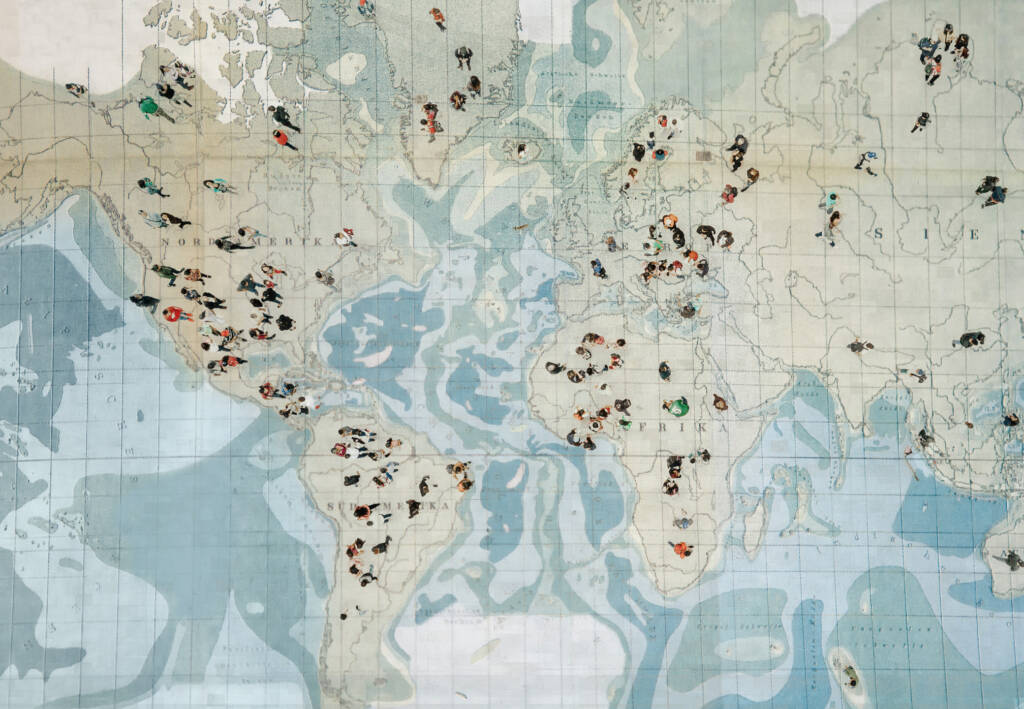
AP Human Geography

AP Human Geography introduces high school students to college-level introductory human geography or cultural geography. The content is presented thematically rather than regionally and is organized around the discipline’s main subfields: economic geography, cultural geography, political geography, and urban geography. The approach is spatial and problem-oriented. Case studies are drawn from all world regions, with an emphasis on understanding the world in which we live today. Historical information serves to enrich the analysis of the impacts of phenomena such as globalization, colonialism, and human–environment relationships on places, regions, cultural landscapes, and patterns of interaction. Students also learn about the methods and tools geographers use in their research and applications.
Major Topics and Concepts
-
Concepts and Processes: Analyze geographic theories, approaches, concepts, processes, or models in theoretical and applied contexts.
-
Spatial Relationships: Analyze geographic patterns, relationships, and outcomes in applied contexts.
-
Data Analysis: Analyze and interpret quantitative geographic data represented in maps, tables, charts, graphs, satellite images, and infographics.
-
Source Analysis: Analyze and interpret qualitative geographic information represented in maps, images (e.g., satellite, photographs, cartoons), and landscapes.
-
Scale Analysis: Analyze geographic theories, approaches, concepts, processes, and models across geographic scales to explain spatial relationships.
Course Materials
AP Course & Exam Registration Requirements
College Board requires students to register for AP exams no later than November 13th (individual schools may set earlier deadlines).
All VLACS AP students are required to enroll in the “course only” section in My AP. Instructions for joining My AP will be posted on each VLACS course page and instructors are available to help with this process.
Students who plan to take the corresponding AP exam must arrange to take the exam at a local school that administers it. To register for an AP Exam, the local school will enroll the student in an “exam only” section in My AP. Students should follow these steps:
- Search for a local test site through this resource of contact AP Services for Students at 888-225-5427 [email protected]. That office can give you contact information for local AP coordinators who may be willing to test outside students. Students are then responsible for contacting coordinators on that list to see if one can arrange to test for you. You should do this no later than October 2nd. Note that schools may have their own local deadlines for receiving requests from outside students to test at their school so we recommend doing this as soon as possible
- The AP coordinator who agrees to assist you must provide a join code for an “exam only” section in My AP. You’ll use the join code to join the section so that the AP coordinator can order your exam.
Please note that, if a school allows a student to register after the 11/13 deadline, there will be a $40 late exam fee. There will also be a $40 canceled/unused exam fee if a student registers and then cancels his/her exam or if the student does not show up on test day.
More information is available on the College Board’s website: https://apstudents.collegeboard.org/
Competencies
Geographic Concepts
Students will demonstrate an understanding of geographic concepts by summarizing methods of geographic data collection, explaining scales of analysis, and differentiating geographic regions.
Population and Migration
Students will demonstrate an understanding of population and migration by explaining methods used to calculate population density, summarizing the impact of population density, analyzing factors impacting population, and explaining geographic effects of migration.
Cultural Patterns and Processes
Students will demonstrate an understanding of cultural patterns and processes by analyzing the components of culture, explaining cultural landscapes, explaining types of diffusion, and summarizing the relationship between religion and human geography.
Political Patterns and Processes
Students will demonstrate an understanding of political patterns and processes by describing political entities, explaining political boundaries used by geographers, and summarizing the influence that events have on political structures.
Agricultural Practices
Students will demonstrate an understanding of agricultural practices by describing the impact of economic forces, explaining the Von Thunen Model, summarizing the impact of technology, and analyzing environmental consequences.
Urban Land Use
Students will demonstrate an understanding of urban land use by describing the internal structure of cities, explaining design initiatives, describing patterns of residential land use, and analyzing processes that drive urbanization and suburbanization.
Industrial and Economic Development
Students will demonstrate an understanding of industrial and economic development by summarizing the impact of the industrial revolution, explaining spatial patterns of industrial production, and summarizing the consequences of economic changes.

